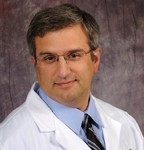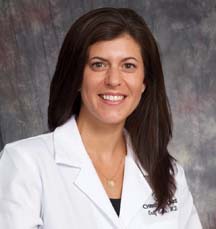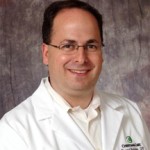Today’s Surgery Options
Help Women Find Relief And Get Back To The Life They Love
As urogynecologists, we specialize in helping women who have pelvic floor disorders such as pelvic organ prolapse and incontinence. The pelvic floor includes the muscles and connective tissue in the lowest part of the pelvis. It supports your organs, including the bowel, bladder, uterus, vagina, and rectum. The discomfort and dysfunction you may experience are symptoms of illnesses or conditions affecting those organs and the muscular structure.
We are focused on treatments that can help women to lead freer, fuller lives and treatments that allow women to return to their jobs, families and other activities they enjoy as quickly as possible.
For about two-thirds of the women who come to us, the most effective treatment includes surgery. Fortunately, due to advances in surgical technique and surgical care, most women are able to quickly resume their busy lives. Today, “open surgery”, which calls for a large abdominal incision, is rare. Instead, we are able to successfully repair the pelvic floor through minimally invasive vaginal surgery, or with laparoscopic surgery where a thin, lighted camera and surgical instruments are slipped through tiny incisions in the belly.
In addition, our surgeons have adopted a program of Enhanced Recovery After Surgery (ERAS). This program, initiated across Christiana Care Health System, begins before surgery and has eliminated many uncomfortable and unnecessary interventions associated with traditional surgical care. This allows our patients greater control over their experience and may contribute to a faster recovery.
Only a few years ago, sacrocolpopexy, a surgical technique for repairing pelvic organ prolapse with soft synthetic mesh, was performed with an open technique that required two or three days in the hospital with a recovery period of about six weeks. For the last several years, we have been performing sacrocolpopexy via laparoscopy, which reduces the hospital stay to one day and shortens the recovery time to as little as two weeks. Patients experience fewer complications and significantly less pain and are able to resume their normal activities much sooner. Most of our laparoscopic pelvic floor repairs are now done with robotic assistance. This technique involves the use of very small tools attached to robotic arms which are controlled by the surgeon. Robotic assistance allows the surgeon to be more precise and to complete the surgery in less time compared to conventional laparoscopy. Every physician in our practice has advanced training and experience in robotic surgery.
Christiana Care Health System has a large robotic surgery program and includes three robots in two hospital locations. The newly remodeled Wilmington Hospital campus includes 14 state-of-the-art operating rooms with a dedicated unit for short-stay surgery. This flexibility allows our patients greater choice and convenience in scheduling surgery.
Every patient is unique, but all of our patients have one thing in common. They want care that is convenient and compassionate, care they value.
Having surgery doesn’t mean putting your life on hold. It can mean making your life better. Let us partner with you to find a treatment option to meet your needs and your lifestyle.
To learn more or make an appointment,call 800-693-CARE (2273).
Please mention you read about this treatment in The Women’s Journal.
Christiana Hospital Medical Arts Pavilion 2 302-623-4055
4735 Ogletown-Stanton Road, Suite 1208, Newark, DE 19713
Christiana Care Center of Women’s Health 302-623-4055
3706 Kennett Pike, Greenville, DE 19807
Christiana Care Concord Health Center 610-361-1030
161 Wilmington-West Chester Pike, Chadds Ford, PA 19317
www.christianacare.org/urogynecology
call 302-623-4055 or visit www.christianacare.org/urogynecology
You will meet highly skilled and caring physicians who are the only urogynecologists in Delaware who have completed fellowships and are board-certified in female pelvic medicine and reconstructive surgery:
 Babak Vakili, M.D., is the director of the Christiana Care Center for Urogynecology and Pelvic Surgery. Dr. Vakili completed his fellowship in female pelvic medicine and reconstructive Surgery at the Louisiana State University Health Science Center.
Babak Vakili, M.D., is the director of the Christiana Care Center for Urogynecology and Pelvic Surgery. Dr. Vakili completed his fellowship in female pelvic medicine and reconstructive Surgery at the Louisiana State University Health Science Center.

Emily K. Saks, M.D., MSCE, is a urogynecologist with the Christiana Care Center for Urogynecology and Pelvic Surgery. Dr. Saks completed her fellowship in female pelvic medicine and reconstructive surgery at the Hospital of the University of Pennsylvania.

Howard B. Goldstein, D.O., MPH, is a urogynecologist with the Christiana Care Center for Urogynecology and Pelvic Surgery. Dr. Goldstein completed his fellowship in female pelvic medicine and reconstructive surgery at Cooper University Hospital in Camden, New Jersey.
Matthew Fagan, M.D., MS, is a urogynecologist with the Christiana Care Center for Urogynecology and Pelvic Surgery. Dr. Fagan completed his fellowship in female pelvic medicine and reconstructive surgery at Greater Baltimore Medical Center/University of Maryland.



